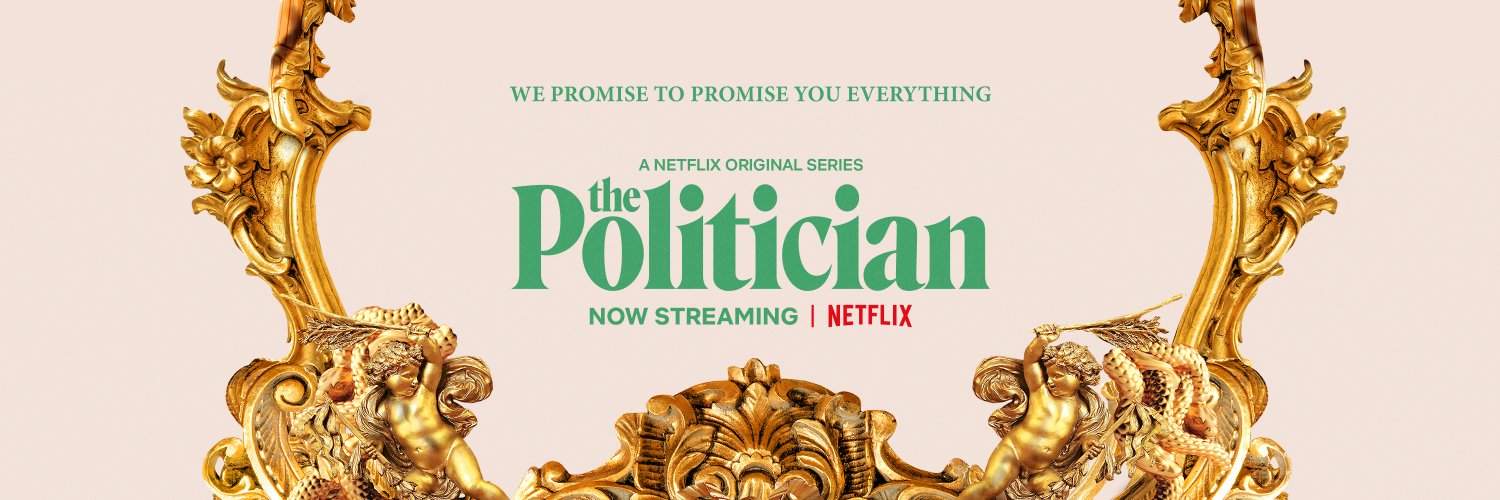
Deputy Editor Emily Calder reflects on Ryan Murphy’s latest teen tv show, praising how it deals with queer representation – but the series ultimately fails to get her vote
Netflix’s latest addition of the comedy-drama The Politician has quickly gained viewership, which can probably be credited to the fact that it has all the ingredients of a TV hit. The show boasts a star-studded cast including Ben Platt and Gwyneth Paltrow, and the eight episode series is created by Ryan Murphy and his team, the minds behind both Glee and Scream Queens.
The series explores Ben Platt’s character Payton – a young, driven and privileged high school student – on his journey to be elected as class president, a step that he sees as the beginning of a path to US presidency. The characters of Payton and his friends, who surround him with an undying support throughout the series, are vibrant, diverse and likeable enough to get you hooked in the first few episodes. Most enchanting is the character of River (David Corenset) and his haunting of the series, as he returns episode after episode to act as Payton’s ‘shadow’ alongside moments of the cutting social commentary and slightly absurd humour that Murphy’s shows all contain elements of.
The Politician is a more chaotic and messy watch than Scream Queens or Glee
Whilst The Politician is a more chaotic and messy watch than Scream Queens or Glee, the energy that runs throughout the show is very similar. If there is one thing you can predict about a Ryan Murphy production, it’s that it will be unpredictable; Payton’s electoral journey jumps between secure and flailing, truly keeping the viewer on their toes. Elements of the story also echo current times, with issues such as Harvard wanting a bribe from Payton reminiscent of modern corruption in the US and its recent college admissions scandal.
Yet elements of the rollercoaster series don’t quite seem to work, as components of the narrative derail it into confusing territory. It’s hard to tell exactly who Murphy’s audience is meant to be; whilst the majority of the show seems to speak to a ‘Gen-Z’ audience, I wonder if the chaoticity behind the series will appeal to those who are not already fans of Murphy’s similar works. The storyline of Payton’s running mate Infinity (Zoey Deutch) and her cancer, presumably a nod to the Gypsy Rose ‘Munchausen by proxy’ saga, did not sit well with me. Whilst I will admit that her character is relevant to the plot and Payton’s electoral fate, such a frenzied, uncomfortably humorous play on a tragic true crime tale seems to pull the show away from its better moments.
The show’s use of Platt’s musical talents (he has starred in Pitch Perfect, Dear Evan Hansen) is one of the bigger red flags, highlighting other areas of the show that don’t seem to fit. Whilst his Joni Mitchell rendition early in the series is poignant, fitting and rather wonderful, the other musical instances – such as Payton and Infinity’s participation in a musical feel like they serve little purpose. I was left wondering how such an extensive display of Platt’s vocals related to the plot – or indeed his character, as his musicality is not really discussed – was relevant to the show itself, and feeling a little like I was watching an alternate universe Glee episode at times.
Germaine is an example of how modern casting can be fluid alongside actors’ sexualities
One thing, however, that I must applaud The Politician for is its treatment of sexuality. The majority of characters in the show seem, or are assumed to be, sexually fluid and undefined. Payton’s infatuation with River and their relationship is not discussed in terms of his sexuality or its implications, it’s just there. Equally Gwyneth Paltrow’s female lover is treated simply as an affair, rather than a lesbian affair. The fact that Brigitte (Martina Navratilova) is a woman is just an element of the relationship, which is made scandalous purely for being an affair. Furthermore, the trans non-binary actor Theo Germaine’s breakout as the character James is portrayed as absolute norm. Whilst shows such as Orange is the New Black have helped trans actors progress through showcasing trans characters, Germaine is an example of how modern casting can be fluid alongside actors’ sexualities, which epitomises the show’s somewhat ground-breaking portrayal of queerness.
Regardless of The Politician’s flaws, I will be coming back for more. The show is one of the few recent Netflix originals that I have found both compelling and addictive, and for this reason I would say that it’s definitely worth a watch. Payton is continuously likeable in spite of his moments of downfall and weakness. Platt’s fantastic performance portrays ambition, a good heart, and a genuine political passion in a way that means the viewer, like his friends, can’t help but root for Payton in spite of his flaws. The show’s final episode sets up for a second season that I think promises to be a better ride than the one we have just seen, and I am definitely ready for what The Politician has left to explore.

Comments